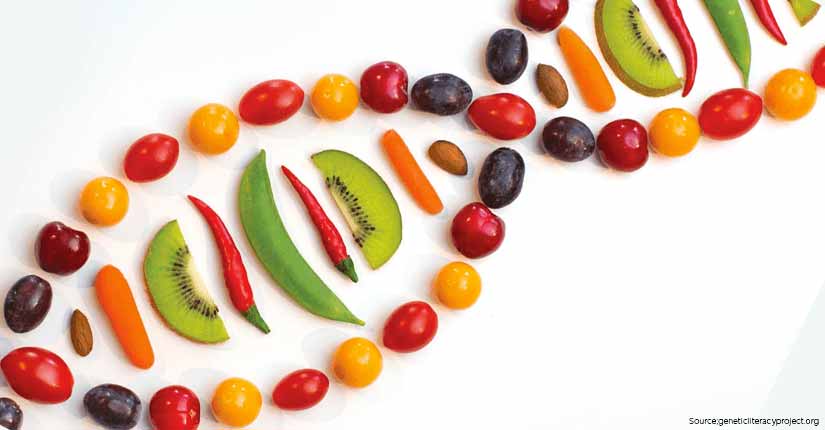Nutrigenomics- The trend to watch out for in 2020
By Nmami Life Editorial 02-Jan 2020 Reading Time: 4 Mins

Nutrigenomics refers to the study of the effects of nutrients on the genetic makeup of an individual. In other words, it is defined as the relationship between nutrients, diet, and gene expression. The main principle is to identify the dietetic components having beneficial or detrimental effects on health. It will also determine the individual nutritional requirements based on the genetic makeup of the person as well as the association between diet and chronic diseases which will help to understand the progression and cause behind chronic diseases such as cancer, type-2 diabetes, obesity and cardiovascular disease.
Nutrigenomics is based following concepts:
- Genes play a role in disease development, and prevention.
- A poor diet can cause alterations in genetic makeup and may become a serious risk factor for many diseases.
- Nutrient deficiencies and toxic chemicals in low-quality foods have an effect on human gene expressions.
- Each person is different in terms of how their genes and health are impacted by their diet.
The application of nutrigenomics in management of obesity has gain importance over recent years. Traditionally clinical management of obesity has focused on managing excess calories and a low metabolic rate. However, increasing knowledge of the genes and molecules involved in the development of obesity is paving the way for new methods of obesity control apart from a healthy diet and exercise. In other words, the influence of nutrients on metabolism and diseases is determined by an individual’s genetic makeup, which can affect digestion, absorption, metabolism, partitioning, and cellular responsiveness to nutrients. A healthy, but also personalized diet can be used to prevent, mitigate, or cure chronic diseases.
Nutrigenomics could also explain how a healthy diet can protect from diseases such as cancer. It has been found that components such as sulforaphane, found in cabbage, cauliflower, and broccoli can naturally inhibit the molecular modification of histones (proteins bound to your DNA). This would prevent certain cancer-specific genes from being able to become dominant.
Over to you
Nutrigenomics is still an emerging field focusing on how we might treat and prevent disease through nutrition. A specific type of diet doesn’t work for everyone. Understanding each person’s genetic profile will help to avoid adverse nutrient reactions with genes. It will also help in creating the individualized plans that work for their bodies. Because nutrigenomics is still a relatively new field, more research needs to be done in order to consider treating people.


















